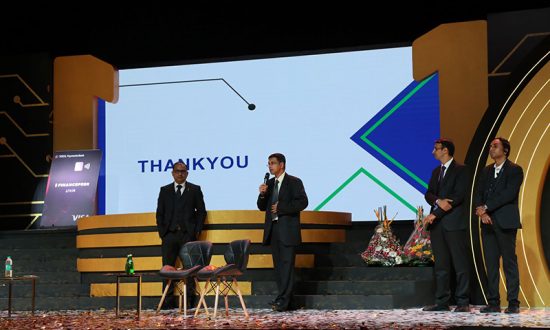With an aim to achieve cash-free campuses, Financepeer, one of India’s leading edu-fintech startups has unveiled its latest offering – the UVA Card, powered by Visa. Financepeer UVA Card Program will be their numberless prepaid photo ID card for students, parents, and institutes to make day-to-day transactions easy and hassle-free.
UVA Card, technologically backed by Visa, is an innovative approach to digitizing the financial system in educational institutes across India. The program intends to create cash-free campuses by enabling the institutes, parents, and students to pay and receive fees, withdraw cash, do e-commerce transactions and be able to make payments effortlessly at any retail outlets that use point of sale (POS) terminals. UVA Cards are pre-paid contactless cards that can drive financial independence among young adults. This card helps in getting extended credits, makes hassle-free payments, and teaches the youth to save and spend money wisely, besides offering various rewards and discounts.
Mr. Rohit Gajbhiye, CEO and Founder, of Financepeer, said, “We are working towards bringing a revolution in Edu-fintech space through technology and at the same time creating impact at the bottom of the pyramid, via increasing access to quality education. Our recent funding and collaboration with industry stalwarts have given renewed strength and a new purpose to our mission. In view of this, we are launching a numberless dual interface product which is a photo ID card to make cashless transactions easy for students, parents and institutes with just a tap. To make electronic payments safer and hassle-free for our students, these Visa cards have been designed with EMV chips”.
Mr. Sujai Raina, Head of Business Development, Visa India said “As a network working for everyone, Visa is committed to expanding financial access and inclusion across diverse demographics. We are delighted to collaborate with Financepeer as they launch the UVA Card, an innovative, prepaid card solution that not just works as a photo ID and payment instrument but aids financial discipline. The UVA card has been designed specifically keeping in mind the unique spending needs of students and their guardians, and is a decisive step towards building a cashless economy among young consumers.”
Financepeer is gearing to expand its reach to remote areas and has witnessed 10x growth in the last year. The company has partnered with more than 10,000 educational institutions with a Pan-India footprint, to deliver affordable fee financing products, Edu-tech content, and fee payment solutions. Founded in 2017 by seasoned alumni from IIT/IIM/Stanford, Mr. Rohit Gajbhiye, Mr. Sunit Gajbhiye, Mr. Naveesh Reddy, and Mr. Debi Prasad Baral, Financepeer is one of the first players in this space catering to both offline and online education providers including pre-schools, K-12, colleges, universities, offline test prep, ed-tech, and skilling.
The launch of the UVA card underscores its strong foundation as a tech-led education financing company, giving learners the freedom to chase their dreams consistent with its focus on innovation and enabling a Rising New India through easy access to education. With a vision to enable inclusion through education globally, Financepeer is committed to facilitating access to education and fostering the growth of educational institutes and learners worldwide.
“Financepeer raised USD 31 MN in Series B funding round in April this year. We are working on enhancing our technology platform and offerings, expanding and strengthening our education-institution partnerships, and deepening the reach in rural areas to enable more students, especially the girl students, to get easy access to quality education”, added Mr. Gajbhiye while addressing the media here at Famous Studio.
Education financing is one of the fastest-growing segments as it is a deeply underserved sector that enables the aspirations of learners across India. Due to the inherently high social collateral, the lending book for this segment has been among the best-performing ones, despite macro shocks caused by the COVID-19 pandemic.




